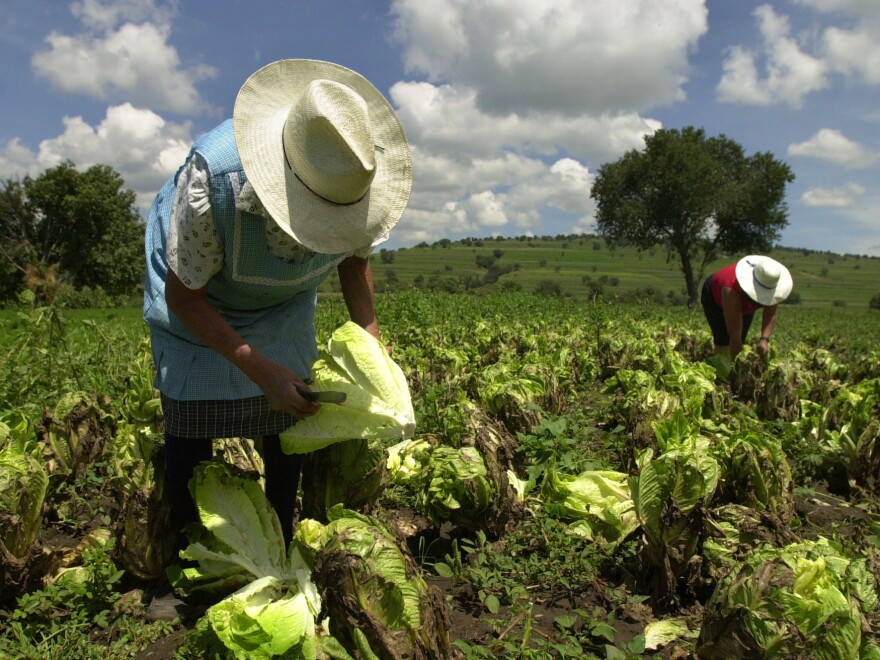The FDA said Saturday it would step up its surveillance of "green leafy products" from Mexico, after a rare parasite linked to a lettuce supplier there caused illness in more than 400 people in 16 U.S. states.
The parasite, known as cyclosporiasis, was first identified at Olive Garden and Red Lobster restaurants in Iowa and Nebraska and has since been discovered in Texas and numerous other states.
In a statement on Saturday, the Food and Drug Administration said its traceback investigation "confirmed that the salad mix identified by Iowa and Nebraska as being linked to the outbreak of cyclosporiasis in those states was supplied to restaurants in those states by Taylor Farms de Mexico, S. de R.L. de C.V., a processor of foodservice salads," adding that the restaurants include Olive Garden and Red Lobster, both of which are owned by Darden Restaurants.
"As a result of the current investigation FDA is increasing its surveillance efforts on green leafy products exported to the U.S. from Mexico," the statement said.
Reuters says it's unclear whether the cases reported from other states are part of the same outbreak identified in Iowa and Nebraska.
Cyclospora is a tiny, one-celled parasite native to the tropics and subtropics and infects the host when it's ingested through contaminated food or water. Symptoms include watery diarrhea, vomiting and body aches.
"Fresh produce is the culprit in many cases of cyclospora infection," according to the Mayo Clinic's website.
The Associated Press says:
"The source of this outbreak has proved particularly hard to trace. Doctors have to test specifically for cyclospora and many don't because it is relatively rare. So they may not order the correct tests, at least not at first. The parasite is so tiny that it's often difficult to confirm that a person has the illness, according to the Centers for Disease Control and Prevention. Tests often have to be repeated with fresh samples."
Copyright 2020 NPR. To see more, visit https://www.npr.org. 9(MDAxNDQ2NDAxMDEyNzU2NzM2ODA3ZGI1ZA001))






